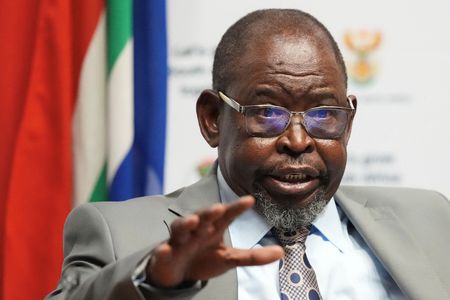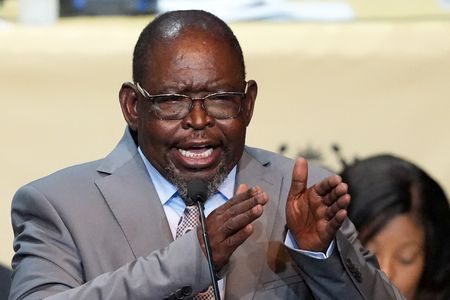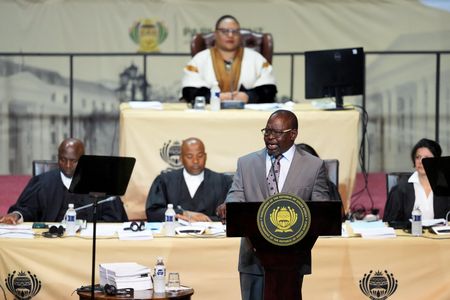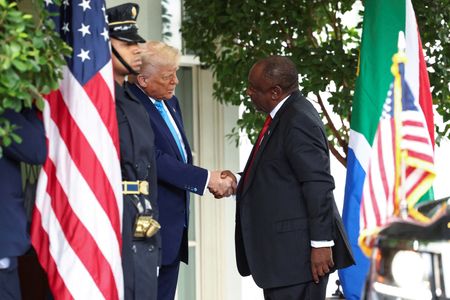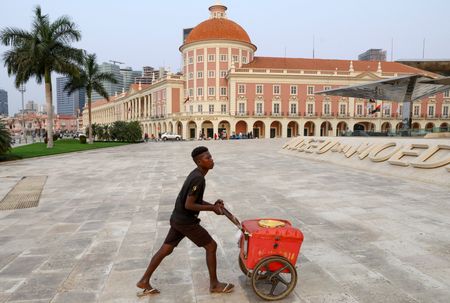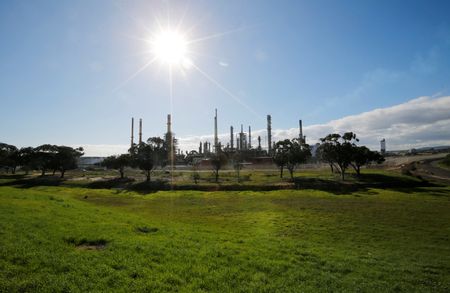By Kopano Gumbi, Wendell Roelf, Olivia Kumwenda-Mtambo
CAPE TOWN (Reuters) -South Africa made only minor adjustments to its spending plans and deficit projections in a third budget presented on Wednesday that was overshadowed by a meeting between its president and U.S. leader Donald Trump later in the day.
Finance Minister Enoch Godongwana had to appear before lawmakers in Cape Town for a third time after disagreements in the ruling coalition derailed two previous budget versions.
The chief bone of contention was Godongwana’s attempt to raise value-added tax, which he had to abandon after parties across the political spectrum rejected it and the second-biggest party in the coalition the Democratic Alliance (DA) took the government to court.
The new budget, which the DA said it should be able to support, projected a consolidated budget deficit of 4.8% of gross domestic product (GDP) in the fiscal year that started on April 1, wider than the deficit of 4.6% of GDP seen in the previous version in March.
Gross debt is seen stabilising at 77.4% of GDP in the 2025/26 fiscal year, higher than the 76.2% of GDP projected before.
Medium-term revenue estimates were revised down by 61.9 billion rand ($3.5 billion) while consolidated spending was lowered by 69.4 billion rand.
“Expenditure cuts were broadly in line with what the market had expected,” said Michelle Wohlberg, a fixed-income specialist at local bank Rand Merchant Bank. “The bigger concern for markets seems to be the Trump-Ramaphosa meeting later this afternoon,” she said.
South African President Cyril Ramaphosa is due to meet Trump in the White House from 1530 GMT in an attempt to reset relations strained by Trump’s repeated criticism of South Africa.
SLUGGISH GROWTH
Since the 2008-2009 global financial crisis Africa’s biggest economy has struggled to achieve growth rates high enough to make a meaningful dent in levels of inequality and unemployment that are among the highest worldwide.
In the past two decades, public debt has shot up as the government has failed to rein in runaway spending, prompting successive credit rating downgrades.
The economy is now expected to expand 1.4% this year, down from growth of 1.9% estimated in March as the global backdrop has worsened since Trump launched his global trade war.
Analysts said the government’s aim for debt to peak this year looked optimistic, a concern previously flagged by ratings agencies.
One element missing from the budget was an announcement of a lower inflation target, which traders had speculated would come after comments by a deputy finance minister at an investment conference last week.
Deputy central bank governor Fundi Tshazibana told reporters that policymakers were not yet ready to change the inflation target from a range of 3%-6% but that there was broad consensus the current target was too broad and out of line with South Africa’s trading partners.
($1 = 17.8774 rand)
(Additional reporting by Sfundo Parakozov in Pretoria and Bhargav Acharya and Colleen Goko in Johannesburg;Writing by Alexander Winning; Editing by Sharon Singleton)

